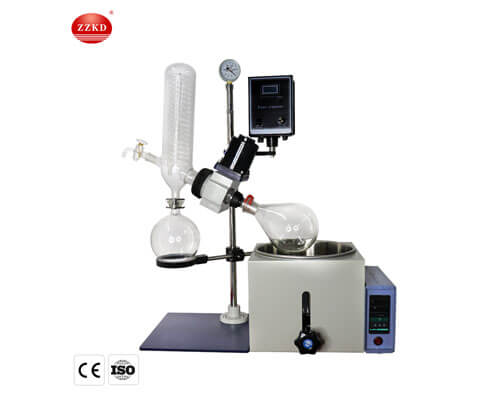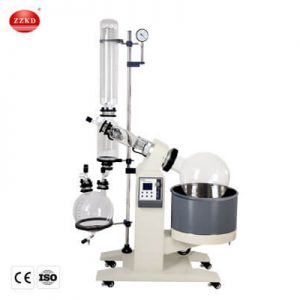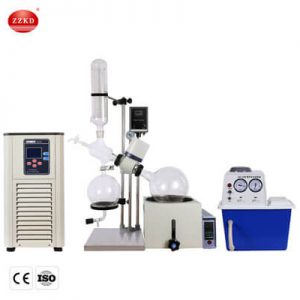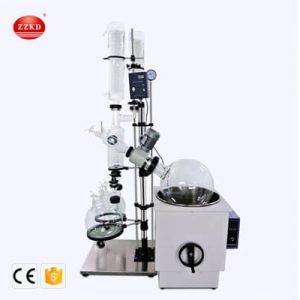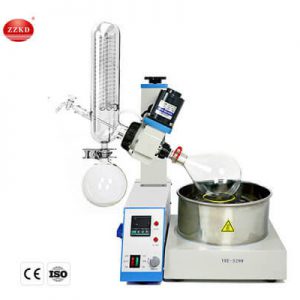RE-201d rotary evaporator introduction
RE-201D is our smallest type of rotary evaporator. It adopts manual lifting and has a capacity of 2L. It is suitable for small capacity distillation and extraction, and is often used in laboratories, research institutes,etc.
RE-201D Mini Rotary Evaporator Features:
Compact Size: Re-201D mini rotary evaporators are designed to be small and lightweight, making them easy to transport and store.
Digital Temperature Control: RE-201D rotary evaporators have a digital temperature control that allows the user to set and maintain the desired temperature.
Easy to clean: RE-201D rotary evaporator is small in size, simple in structure, easy to disassemble and clean, and most parts can be disassembled for cleaning and maintenance.
Low Noise: The mini rotary evaporators are generally designed to be low noise, making them suitable for use in quiet laboratory environments.
Cost-Effective: Mini rotary evaporators are generally more affordable than larger rotary evaporators, making them a cost-effective option for small-scale evaporation processes.
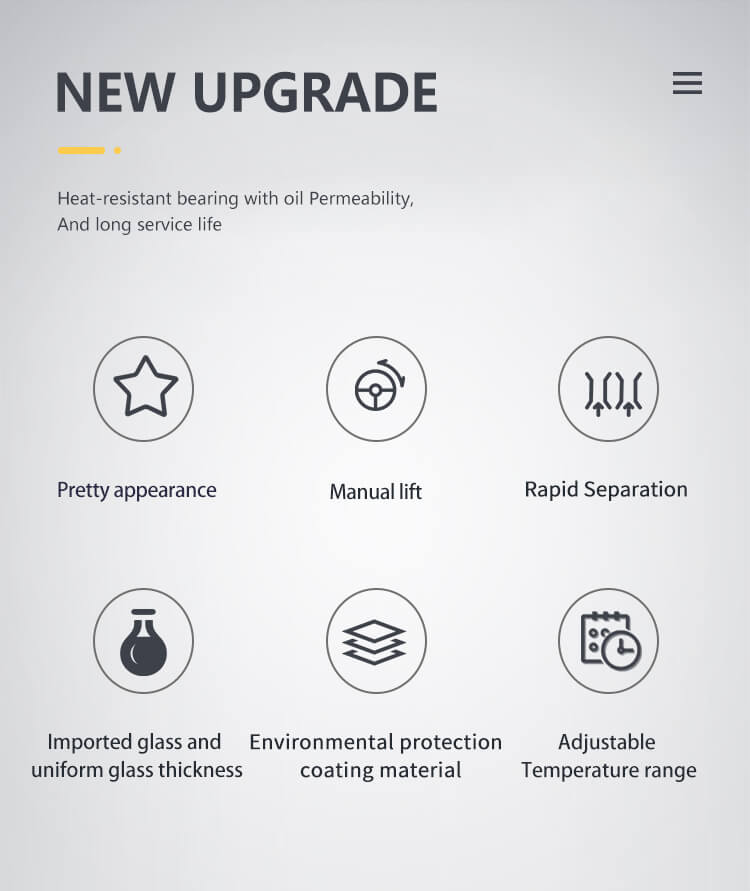
RE-201D Mini Rotary Evaporator Application:
Rotary evaporators are widely used in various industries for a range of applications that require the removal of solvents and other volatile compounds. Some of the industries that commonly use rotary evaporators include:
Chemical industry: Rotary evaporators are used in the chemical industry for the production of high-purity chemicals, such as pharmaceuticals, pesticides, and fine chemicals. They are also used for the analysis of chemical samples.
Food industry: Rotary evaporators are used in the food industry for the production of flavorings, fragrances, and other natural products. They are also used for the analysis of food samples, such as the detection of pesticide residues.
Environmental industry: Rotary evaporators are used in the environmental industry for the analysis of water and soil samples, as well as for the detection of volatile organic compounds (VOCs) in air samples.
Petroleum industry: Rotary evaporators are used in the petroleum industry for the analysis of crude oil samples and the production of high-purity solvents.
Research and development: Rotary evaporators are used in research and development laboratories across various industries for small-scale synthesis, reaction monitoring, and sample concentration.
In addition to these industries, rotary evaporators are also used in academic institutions for teaching and research purposes.
In summary, rotary evaporators have a wide range of applications across various industries, including the chemical, food, environmental, petroleum, and research and development industries. They are essential tools for the analysis and production of high-purity compounds, as well as for small-scale synthesis and reaction monitoring.
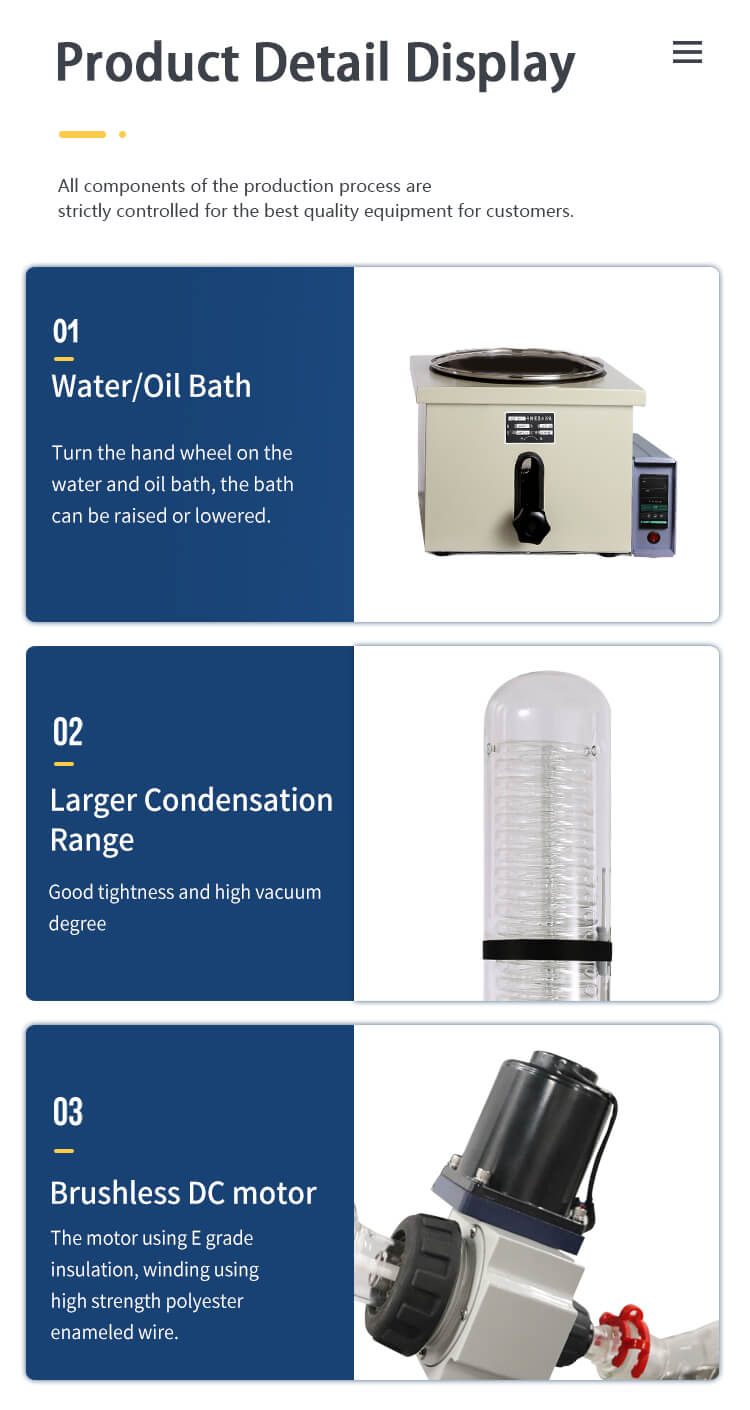
Supporting Equipment for RE-201D Mini Rotary Evaporator:
DLSB-5/10 Refrigerated Circulator
Storage Volume: 5L
Low temperature range: -10℃~RT
Refrigeration capacity: 280~620W
Rated Power: 420W
SHZ-D(Ⅲ) Water Circulating Vacuum Pump
Power: 180W
Flow(L/min): 60
Lift(m): 8
Max.Vacuum(Mpa): 0.098
Tank Capacity: 15L
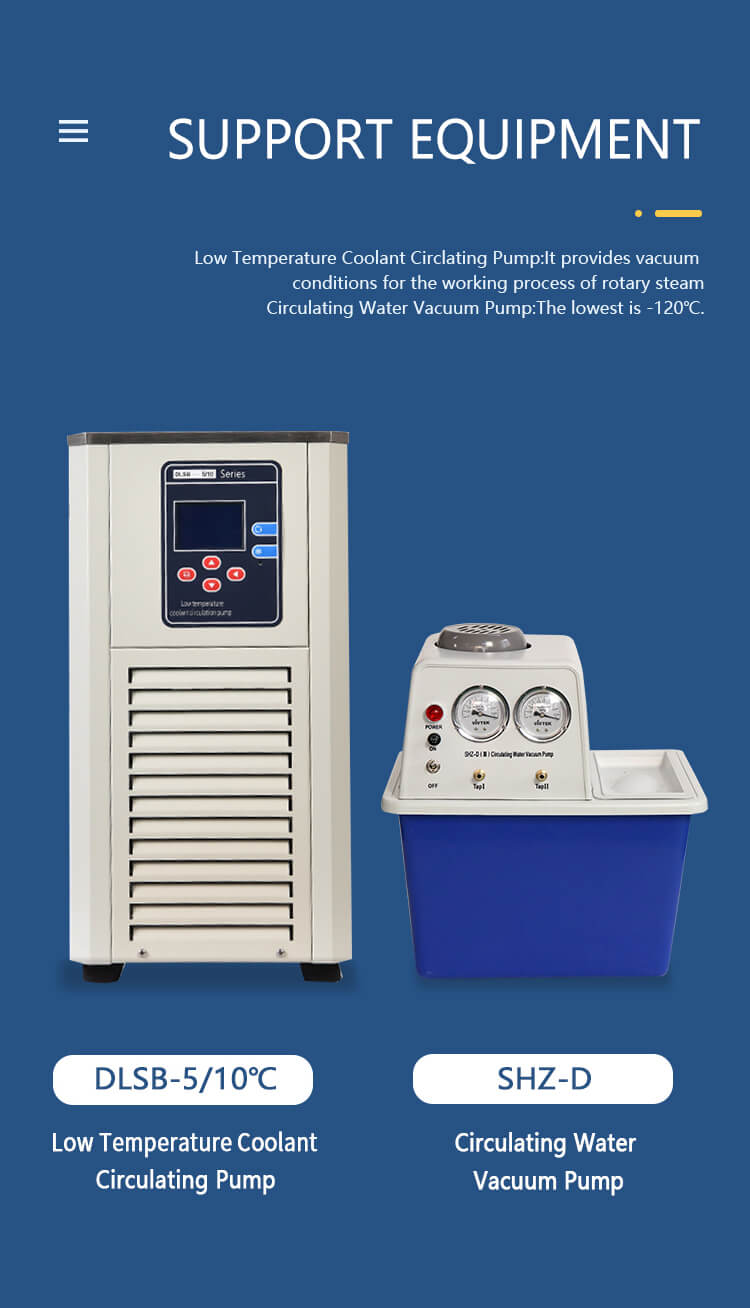
Case of RE-201d Rotary evaporator:
RE-201D Rotary Evaporator for sale USA.
This is a USA customer used in a university laboratory.
The purposes of them are as follows:
Solvent removal: RE-201d mini rotary evaporators are used to remove solvents from reaction mixtures. This is important for the isolation and purification of the desired product. mini rotary evaporators are commonly used in organic chemistry laboratories to remove solvents from reaction mixtures.
Concentration: RE-201d mini rotary evaporators are used to concentrate samples. This is important for the analysis of small samples, where the amount of the analyte is limited. Mini rotary evaporators are commonly used in analytical chemistry laboratories to concentrate samples prior to analysis.
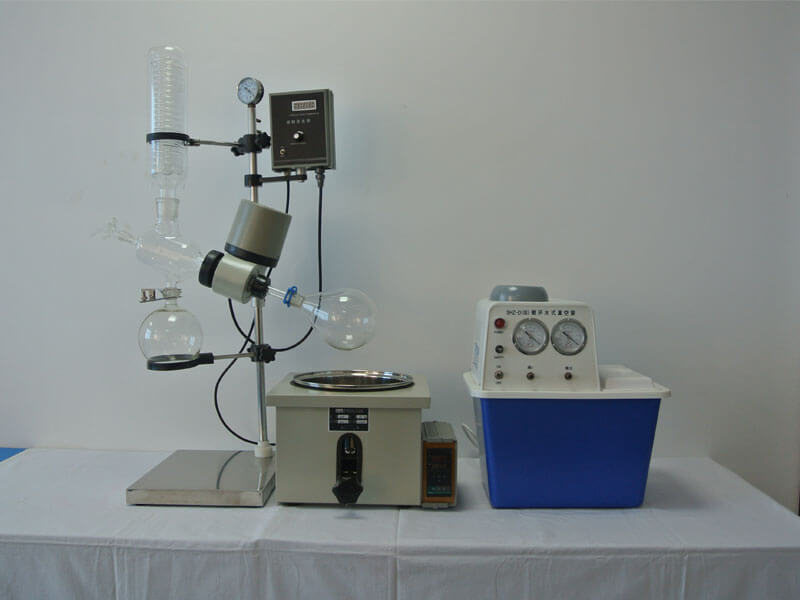
Fractionation: RE-201d mini rotary evaporators can be used for the fractionation of mixtures. This is important for the separation of complex mixtures, such as natural product extracts. Mini rotary evaporators are commonly used in natural product chemistry laboratories for the fractionation of plant extracts.
Teaching laboratories: RE-201d mini rotary evaporators are used in teaching laboratories to teach students the principles of distillation and other separation techniques. This is important for undergraduate and graduate students in chemistry and other fields.
Small-scale synthesis: RE-201d mini rotary evaporators are used for small-scale synthesis experiments. This is important for the development of new synthetic routes and the synthesis of new compounds. Mini rotary evaporators are commonly used in research and development laboratories for small-scale synthesis experiments.

